|
|
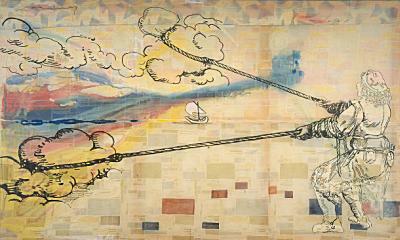
Hope is: Wanting to Pull Clouds
Sigmar Polke
b. Feb. 13, 1941
_______________________
Continuing Against Closure
Lyn Hejinian
Reality precedes us. It was here before we were and it will be here after we are gone.
Although reality, by and large, doesn’t reciprocate our interest in it, our interest in it is very great — it being, after all, all that we have.
Of course. What reality includes is all that there is. Can we say, then, that reality exhibits closure? that reality is self-contained?
Like any biologist, we have to answer in the affirmative: “No.”
It is the fate of logic to undo closure infinitely.
...(more)
ReasonLyn Hejinian
1Along comes something -- launched in context.
How do we understand this boundary?
Let’s begin by proposing it as a dilemma.
...(more)
_______________________
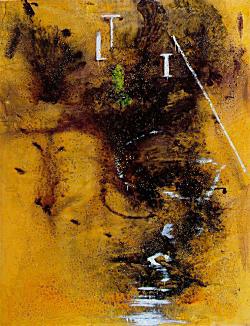
Lingua Tertii Imperii
Sigmar Polke
Sigmar Polke: History of Everything
Tate Modern
_______________________
from Of Being Numerous
George Oppen
26
They carry nativeness
To a conclusion
In suicide.
We want to defend
Limitation
And do not know how.
Stupid to say merely
That poets should not lead their lives
Among poets,
They have lost the metaphysical sense
Of the future, they feel themselves
The end of a chain
Of lives, single lives
And we know that lives
Are single
And cannot defend
The metaphysic
On which rest
The boundaries
Of our distances.
We want to say
‘Common sense’
And cannot. We stand on
That denial
Of death that paved the cities,
...(more)
_______________________
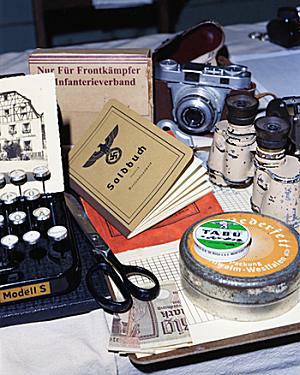 Nicola Kast
featured in
Lay Flat
Lay Flat 01: Remain in Light
editor, Shane Lavalette, and Karly Wildenhaus
44 pages and 20 unbound photographs
Edition of 1000
_______________________
from Happily
Lyn Hejinian
lingo 8
The manner in which we are present at this time to and
fro appears before us
The matter is so
Can we share its kind of existence
The brink ‹ that's the sympathy
Sound circling point of hearing
Think how different it is when we come to point of
view
"I" moving about unrolled barking at blue clouds
devoted ‹ to each other?
To hasten to the point? to evade anxiety? to picture?
Having awkward heaviness "I" never moves freely
about unless passing and happening
accompanied
And this is how
Our pleasure is perplexed beyond that
Sky onward lowers as if the earth had been keeping
still so as to stay out of its way
If we thrill to low hills because they are not composed
they are "composed to our liking"
They say there is no defining that ‹ but to say that is
defining that ‹ living in context
One would think of all the social forces traveling with
a show of indifference over a crowd or sound
brought to a sound
A good person would be starred ill and well in a life he
or she couldn't know how to refuse
Every day we may never happen on the object hung on
a mere chance
When and where one happens it will surprise us, not in
itself but in its coming to our attention, not as
something suddenly present but as something
that's been near for a long time and which we
have only just noticed
When we might ask did we begin to share that
existence
What have we overlooked
Nostalgia is another name for one's sense of loss at
the thought that one has sadly gone along
happily overlooking something, who knows
what
...(more)
Lyn Hejinian at EPC and Pennsound
nights in a time of war
Lyn Hejinian
Oxota: A Short Russian Novel
Lyn Hejinian google books
"Though we keep company with cats and dogs":
Onomatopoeia, Glossolalia and Happiness in the work of Lyn Hejinian and Giorgio Agamben
William Watkin
jacket
_______________________
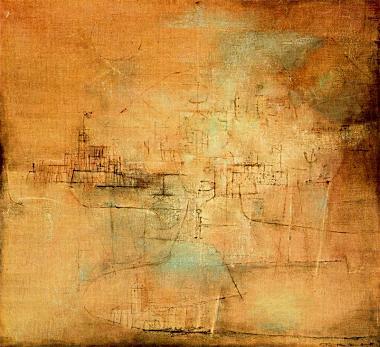
Zao Wou-ki
b. Feb. 13, 1921
1 2 3
_______________________
China: 5,000 Years
Electronic Exhibition of Modern Section
"The exhibition is organized around four of the most compelling of the multiple realities that Chinese artists have constructed for themselves over the past century and a half. Moving roughly chronologically, the exhibition begins on the first floor with Innovations in Chinese Painting, 1850-1950. The second floor opens with radical experiments in Western media in The Modernist Generations, 1920-1950; moves next to the development of socialist realism in Art for New China, 1950-1980; and concludes with Transformations of Tradition, 1980-the Present, an examination of current trends."
_______________________
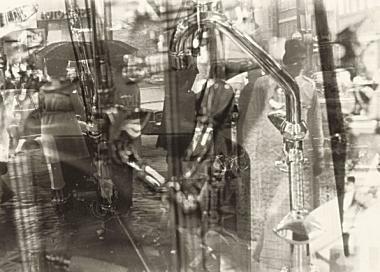
Düsseldorf
Sigmar Polke: Photographs
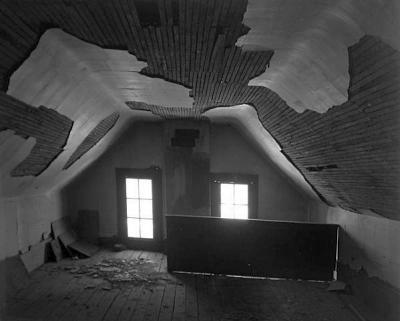
Attic Windows
Oliver Gagliani
1 2 3 pointer from Ordinary finds
_______________________
The Gift
Keith Wilson
--for my daughter Kathleen
This is a song
about the gift of patience
of opening
the need to walk alone
ever, deeper, into
This is a poem
against light
a recommendation
to darkness
Bring a candle
the room is warm
This is a song
 Keith Wilson: 1927-2009
Bobby Byrd
A Celebration of Keith Wilson's Poetry
Introduction by Joseph Somoza .....................................................
The Encircled Grove
Keith Wilson
I never understand anything
until I have written about it
And written here is the ceremony of the land
itself, without commentary, other than what it,
this grove, places before the senses. In the deep cool
of glades, clumps of twisted salt cedar, snake
barked cottonwoods with trunks twice as thick
as a man, broad leaves pushing at the sunlight
that only glimmers down to the moist earth
with its beetles and ferns.
The grove is circular out of ancient incantation,
some enchantment older than Comanche spoke here,
formed this protected world and helf it against
wind or geology. The high plain stops at the edge
of its greenness, swirls around it, continues
as far as the eye travels the spreading land
and domed blue hold it in their rushing powers.
Sky Father. Earth Mother. Here is the point
equidistant, focused, the navel that magic flows
through
As I passed through
shaped, protected, set free by the Pecos River
and the wind from the quarrels of family, whispers
that held our old house fast. Grandmother's ghost
could never walk in the Bosque where silence became
a moistness, held your breath like another pair
of murmuring lips.
Selected Work by Keith Wilson
_______________________
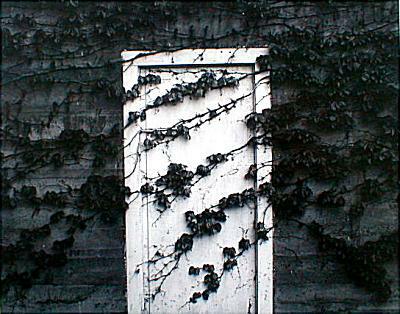
Oliver Gagliani
_______________________
White–out, Pojoaque River
Nathaniel Tarn
for Keith Wilson
Eye–socket muscles clench around snow–glare
like two fists. He sees winter only in this world:
everywhere else is summer. Dogs tame
to gentleness in the yards he passes; only a horse,
taciturn all year, chooses to neigh now.
His Samoyed, white against white, off to a war,
scats up black pads like signals. Explosion
of magpies—sky trailing from low tails,
ink and frost featherworks. In these distances,
both east and west, the mountain tables sit
powdered with snow as if the gods had flown
to scatter glacial pollen on their thrones.
He walks a colorless music, ivory and black
coding the universe alone (where, finally,
slight spider death had crawled on poison,
now sorrowed for, and shrunk to her last web).
At the impassable water, where the walk ends,
he hears potential company. No: now it’s river
plays her bass counterpoint against a leaf
held to its branch. Treble is higher up, against
a stone. At last, the leaf dislodged moves on
downstream. Sound stops—breaking a silence.
Recollections of Being
Nathaniel Tarn
google books
_______________________

The Market Crier
self portrait
Max Beckmann
(February 12, 1884 - December 28, 1950)
_______________________
For Soft Architects
Lisa Robertson
Lucite
(a didactic)
(because the present is not articulate)
Sit us on Lucite gently and we will tell you how knowledge came to us.
First the dull mud softened resulting in putrefaction, lust and
intelligence, pearl globs, jeweled stuff like ferrets, little theatres of
mica, a purse containing all the evil smells of daily life. Then just the
one vowel, iterate and buttressed and expiring; leaning, embracing, gazing.
It devised with our claw identity for the sake of food. Selves, it says,
feeding us, I adore you, you know. Like a boy blowing from a tree, we
decided, we were paid, we were free. We incessantly prepared for the
future. On the title page, two angels blowing on the trumpets of fame held
up a globe decorated with three fleur-de-lys and topped with a crown. We
learned habits and tricks; we faked happiness and relief. We were a single
grin with lips pasted back. We said we saw Europes of hallucination, fatty
broths sprinkled with deer, stenciled eagles, serpents and lurid rags. That
was a format of saying, a frayed ligature. We were fading into the presence
or absence of food, of sleep, of doubt....(more)
_______________________
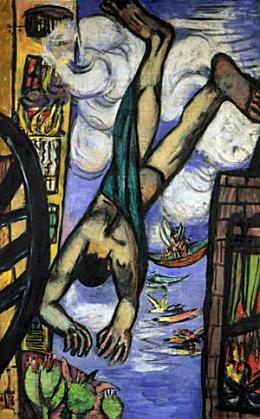
Falling Man
Max Beckmann
1950
_______________________
Narrative /Identity
kari edwards
narrative, isn't that the sort of thing that forms identity, maybe I was thinking of another narrative. whatever the case . . . I see narrative as something that needs to be troubled, discarded or at least sent through the shredder.
I personally attempt to find the edge of narrative where it starts to disintegrate into dada manifesto and ends up negating itself . . . well, that’s not quite it . . . I attempt to find the edge where narrative turns into an endless [cycle] of rejecting, appropriating [and] expelling . . . digressing from the thread of the possible, to the impossible, to the utopian . . . that at any moment, can fall into the depths of a tortuous shadow . . . did I mention brandon teena was beaten, raped, then murdered . . . I am not sure I said that . . . anyways, I try to maintain a thin connective tissue of narrative about the object at hand, so I don't lose myself to a lack of gravity, fear, or trumped up charges listed in the diagnostic and statistical manual of mental disorders. but the question is how loose can the connective tissue be and still maintain a sense of cohesion? does it even need to be narrative? could it be lists, phone numbers, or instructions on the impossible!?...(more)
Narrativity
_______________________

August Sander
Children Galerie Priska Pasquer
_______________________
August Sander: The Mask Behind the Face
Leo Rubinfien
Art in America, June-July, 2004reposted at Americansuburb X
_______________________
A Conversation with Michel Butor
Anna Otten
To cling to traditional ways was an illusion people had. That is no longer possible. The idea of doing is important. And to write is action par excellence.
Some things have to be finished, the work itself has to expand. The writer is a tenuous beginning, we cannot even say a beginning—an articulation. He is situated midway between the older and the newer reality. When he publishes his work and people read and respond, he helps to shape the future that will in turn become a past. When the writer dies, his work will survive.
An efficient work of literature will close some bad periods, but that closing is not permanent. Even during unproductive cultural epochs, something can be redeemed. We have never closed the Dark Ages. Our own age is still dark and we hear voices rising out of it. We have to change our past in order to change our future. We must turn back and throw light on it to see it in a new way. What we need is archeology around and in ourselves.
There is a strong link between inspiration and childhood. When Proust wanted to experience a new childhood and become a writer, he had to go back to his first childhood. Things forgotten wait in the library of your mind. It is a question of having to look back ward and yet not go backward at the same time. To free Euridyce from Hades, Orpheus was forbidden to look back at her and when he did, he lost her. Almost the same legend can be found in the Bible. It is the story of Lot’s wife, who, when fleeing Sodom, looked back and was transformed into a pillar of salt. We have to be able to look forward, but to bring back Euridyce you have to go back to Hades. It was a very powerful memory, which was at the origin of the journey to hell. We always have to descend into hell in order to got out of it. It’s also an open cycle....(more)
_______________________
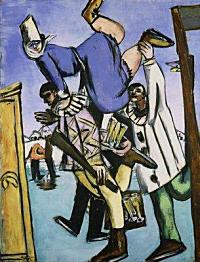
The Skaters
Max Beckmann
1932
_______________________
The Poem Politic X: A Note for Future Historians
Keith Wilson
1972
When writing of us, state
as your first premise
THEY VALUED WAR MORE THAN ANYTHING
You will never understand us
otherwise, say that we
cherished war
over peace and comfort
over feeding the poor
over our own health
over love, even the act of it
over religion, all of them, except
perhaps certain forms of Buddhism
that we never failed to pass bills of war
through our legislatures, using the pressures
of imminent invasion or disaster (potential)
abroad as absolution for not spending moneys
on projects which might make us happy or even
save us from clear and evident crises at home
Write of us that we spent millions educating
the best of our youth and then slaughtered them
...(more)
"So I turned around for an instant to look at what my field of vision onto the sea had not offered up ...."
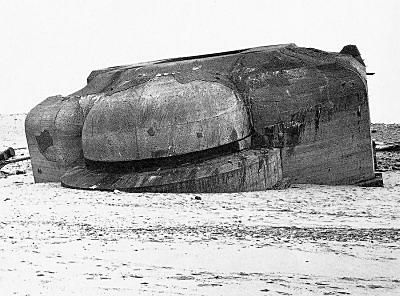
Tilting
The Frightening Beauty of Bunkers
Paul Virilio
the morning news
My objective was solely archeological. I would hunt these gray forms until they would transmit to me a part of their mystery, a part of the secret a few phrases could sum up: why would these extraordinary constructions, compared to the seaside villas, not be perceived or even recognized? Why this analogy between the funeral archetype and military architecture? Why this insane situation looking out over the ocean? This waiting before the infinite oceanic expanse? Until this era, fortifications had always been oriented toward a specific, staked-out objective: the defense of a passageway, a pass, steps, valleys, or ports, as in the case of the La Rochelle towers; it had always been a question of “guarding,” as easy to understand as the caretaker’s role. Whereas here, walking daily along kilometer after kilometer of beach, I would happen upon these concrete markers at the summit of dunes, cliffs, across beaches, open, transparent, with the sky playing between the embrasure and the entrance, as if each casemate were an empty ark or a little temple minus the cult. It was indeed the whole littoral that had been organized around these successive bearings. You could walk day after day along the seaside and never once lose sight of these concrete altars built to face the void of the oceanic horizon.
The immensity of this project is what defies common sense; total war was revealed here in its mythic dimension. ...(more)
Bunker ArcheologyPaul Virilio
Princeton Architectural Press, 1975
via Infocult
_______________________
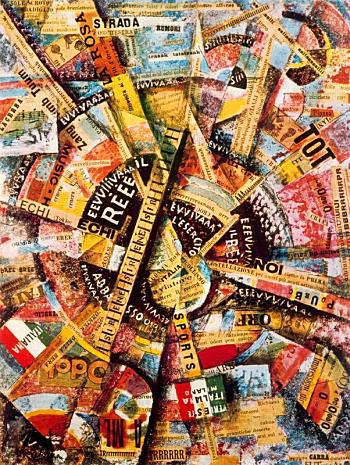
Interventionist Manifesto
1914
Carlo Carrà
(February 11, 1881-April 13, 1966)
_______________________
Capitalism’s Self-inflicted Apocalypse
Michael Parenti
If the paladins of Corporate America want to know what really threatens “our way of life,” it is their way of life, their boundless way of pilfering their own system, destroying the very foundation on which they stand, the very community on which they so lavishly feed.
.....................................................
What do you call someone who eliminates hundreds of thousands of American jobs, deprives millions of adequate health care and nutrition, undermines schools, but offers a $15,000 bonus to affluent people who flip their houses?
A proud centrist.
- Paul Krugman
.....................................................
The Lowdown
Hullabaloo
Here's a list of what the Axis of Nelson-Collins cut out of the bill to make room for more tax cuts.
$40 billion State Fiscal Stabilization
$16 billion School Construction
$1.25 billion project based rental
$2.25 Neighborhood Stabilization (Eliminate)
$1.2 billion in Retrofiting Project 8 Housing
$7.5 billion of State Incentive Grants
$3.5 billion Higher Ed Construction (Eliminated)
$ 100 million FSA modernization
$50 million CSERES Research
$65 million Watershed Rehab
$30 million SD Salaries
$100 million Distance Learning
$98 million School Nutrition
$50 million aquaculture
$2 billion broadband
$1 billion Head Start/Early Start
$5.8 billion Health Prevention Activity.
$2 billion HIT Grants
$1 billion Energy Loan Guarantees
$4.5 billion GSA
$3.5 billion Federal Bldgs Greening
_______________________
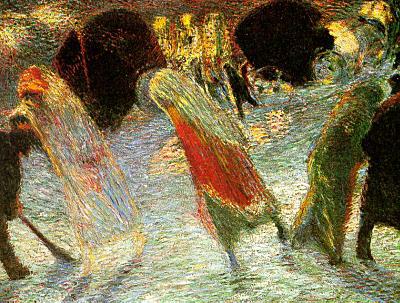
Leaving the Theatre
Carlo Carrà
1909
_______________________
A Commodity Called Misery
Joe Bageant
Our authorized sanities are so many Nembutals. "Normal" citizens with store-dummy smiles stand apart from each other like cotton-packed capsules in a bottle. Perpetual mental out-patients. Maddeningly sterile jobs for strait-jackets, love scrubbed into an insipid "functional personal relationship" and Art as a fantasy pacifier ... And we all know this ... Slowly, very slowly we are led nowhere.
-
San Francisco Digger Papers, 1965
(....)
Whether the final American collapse takes four years or forty years is anybody's guess. But it's gonna take a passel of behavioral management experts, whether in psychological institutions, university research centers, or on Madison Avenue, to keep the lid on this puppy when she blows. However, I'm not ruling out the possibility that they just might help do that -- keep the lid on -- because they are state authorized and accredited to do so. The infrastructure of industrial strength administration of psychology is there. And has been ever since sheepskins were issued to "industrial psychologists."
Nobody in the Western World seems to see the irony and conflict in that term. But the fact is that even if 50 million Americans exploded tomorrow, they would have "snapped" alone, particulated and atomized in a very large and spread out country, and ultimately be administered treatment or institutionalized as "individuals." Of course, if they were more concentrated, which would put them in a situation to act in unison, then god help ‘em because they would then be a national security problem, the last thing you want to be in a security state....(more)
_______________________
Ordering Things
Lisa Lubasch
Electronic Poetry Review #6
In this we deliberate, marking various degrees
of the day
That stands on the horizon, as a value
What words lead us, secreting away
our form
Perceiving the value as
the sequence
Of efforts, without delimiting them
Keeping a course, not hurrying
All this, inwardly, through a desire
along the fissure
A name occurring, in time with the event—
By the by,
scripting a scene
These actions, not necessarily
synchronous
ever moving into their forms,
as desires
shaken of a subject—
All the while, the evaluation
turning, leaning against the frame.
...(more)
Ordering Things, 2
Ordering Things, 3
Lisa Lubasch at duration press_______________________

Czech Eden
Matthew Monteith
Matthew Monteith at Bernstein & Andriulli
_______________________
4 texts by Leland de la Durantaye on Agamben
Farhang Erfani
Continental Philosophy
With a title as enigmatic as The Open, the reader might well wonder, “the open what?”
Is the title's adjective to stand alone? Does it need no substantive to support it? This
unfamiliar title is not what one might fi rst guess—it is not an awkward translation from
the work's original title. No substantive follows in the original, and none is meant to.
The idea that gives Agamben's book its title is that of an openness which is unconditioned—
and perhaps unconditional, an openness which is unspecifi ed—and perhaps
unspecifi able.
If the answer to the question “the open what?” can be answered with no substantive,
might we ask in what this opening occurs? Between what more substantive things
has an indefi nable space been opened? The fi rst answer to the question can be found
in the work's subtitle—Man and Animal. The open space in question is that which
separates and distinguishes man from animal. Philosophers, anthropologists, social
scientists, zoologists, chemists, taxonomists—and many others—have had no small
diffi culty in agreeing upon the matter. .....................................................
The Suspended Substantive [pdf]
On Animals And Men In Giorgio Agambens The Open
Leland De La Durantaye
_______________________
Nick Piombino's fait accompli celebrates its 6th birthday.
Congratulations and thanks - mw
_______________________
Dan Green's The Reading Experience turns 5 and celebrates with TRE Prime"
This site might be called a "best of" blog, although I really see it as an opportunity to identify the main subjects and concerns The Reading Experience has explored and to show how these concerns have been developed, restated, and modified over the course of the blog's existence. Each of the categories could to some extent be taken as separate chapters in a larger cybertext that isThe Reading Experience, at least in this circumscribed and idealized form.
via Mark Thwaite
_______________________

Czech Eden
Matthew Monteith
Matthew Monteith interview
Shane Lavalette
Review: Czech Eden by Matthew Monteith
Jörg Colberg Czech Eden
Matthew Monteith
amazon
_______________________
[Out of Inventiveness—Looking]
Lisa Lubasch
jubilat
out of inventiveness—looking—the clock has strayed—abandonment—bleached as day, its underside—where the fact is suffocated—submerged—defended from moral obligation—all accessories fading—in rushed revisions—light is tracing—scripting—lies are fancied—beneath awnings—and become relentless—indefatigable chords—trimmed from mouths—or lines of entries—the vision is fallible—tearing—is likened to idling—on the river—over woods, abundantly—a slippery concern—is riled—to contain abandonment—shifting—out of consonance—and anemic—in its fathering—thrown out with the trees—and the gusts—a redundant longing—in decline—all projects growing dim—hard to return to—but trying—deceptive in their celibacy—deliberate, narrowed—out of all approval—in memory—demanding—whimpering—to unearth the splendor—of the path—conceptual or curdled—I—right there in the month—leaves are showing—their triumphant signals—luminous scatter—unaware—of other diverse events—their meager capacity—for astonishment—barren ideas—loosing themselves from—legitimate reception—and so content to stutter vaguely—inside a meaningless hour—of lapsing—and converging—the day beside us—shading—in the course of its contention—which has withered—which has turned
_______________________
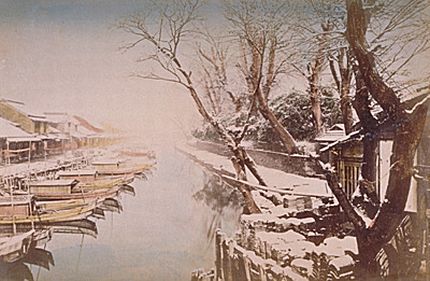 Sanyabori Canal
Japanese photography
Bakumatsu-Meiji Period
(1860-1899)
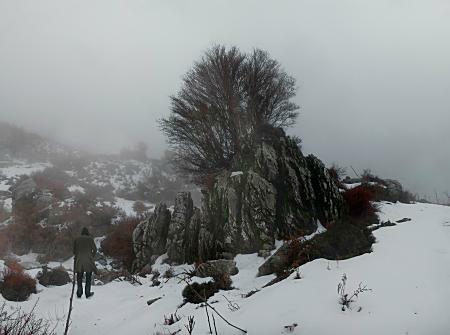
Michael Roulier Michael Roulier on Flickr
_______________________
from To Cross This Distance
Jaime Saenz
(1973)
translated by Kent Johnson and Forrest Gander
I
I am divided from myself by the distance I find myself in,
the one who is dead is divided from death by a great distance.
I plan to cross this distance, resting along the way.
Face up, in the dwelling of desire,
stock still, in my place—opposite the locked door,
with a winter's light at my side.
In the corners of my room, in the chair's arena.
With wavering memory splitting off from the void
—on the ceiling of the vault,
the one who is dead must communicate with death.
Contemplating the bones on the plank, numbering the darknesses with my fingers starting from you.
Seeing that things are, I fill with desire.
And I find myself crossing a great distance.
II
Like nocturnal air, the Festival of the Spirit is a finished thing,
like the ladder—leaning against a wall to hear the word—is a finished thing,
like the line I once traced, the line your shadow fled, is a finished thing.
Like the smoke in the braziers with the incense and the vapors spreading,
longing for voices,
like the lights and the mirrors rising toward the winter skies,
with the vanished memory of the customs and of those who are definitively distant in the distance,
thus it is that the implements and the skulls are no longer implements nor skulls,
in the ceremonies of winter, they are no longer used.
.....................................................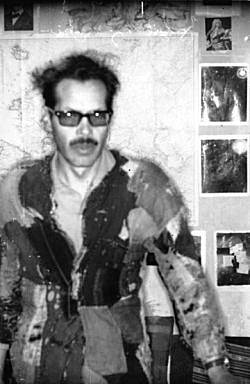
Jaime Sáenz
(1921–1986)
Immanent Visitor
Selected Poems of Jaime Saenz
A Bilingual Edition
translated from the Spanish by Kent Johnson and Forrest Gander
online escholarship edition
.....................................................
From Immanent Visitor (1964)
This immanent visitor haunts lilies and the body's delicate down, he adorns a penumbra.
He roams the chords and the manifold contours, and here, in the window and there, in the magnificent forest,
this wayfarer gazes at me, unreadable,
veils himself in the dense and pungent smell of lamps
and in those intricate weavings oblivion loomed
—the felicitous slips into the periphery
of his marble stare, washed and smooth,
his gaze and grace and flourished baton orchestrate a song for the fossiled stars
and from below and above undulate the flux and curve of an undergrowth of dreams
which our steps flatten without pity to the ground.
A flame hovers over the prattle, ensombers the wine's sediment,
and proclaims the arrival of a corpse to the rituals of morning
—light-fearing, the dead one, with ears of gold and cacao,
a torso engraved in his memory,
tears lovely as spiders
and hands alert in their place,
amid the stillness of the psalms.
Immanent Visitor
Selected Poems of Jaime Saenz
A Bilingual Edition
Translated from the Spanish by Kent Johnson and Forrest Gander University of California Press
Some Things You Should Know about Jaime Saenz
Forrest Gander & Kent Johnson
In Search of the Night
on translating Jaime Saenz: an Interview with his translators, Kent Johnson and Forrest Gander
jacket .....................................................
Some Days in the Life of The Night:
Notes from Bolivia, June 20-30, 2004
Forrest Gander and Kent Johnson
jacket
What fills the spinnakers blows toward the past. And yet the women on the street trod forward, hunched, their domed bowlers blind and impartial, like dark beacons. Invisible, the aparapitas in their stitched, bricolaged raiment, drink to the dregs, barely speaking, sunk in dank, unmarked bodegas, knowing, as Saenz affirmed, that they know nothing and know everything, everything that matters in the end....(more)
_______________________
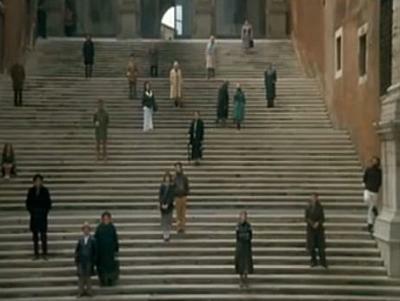
nostalghia
Andrei Tarkosvky
clips at youtube
_______________________
FragLit Magazine
is a free, international literary magazine of fragmentary writing sponsored by Impassio Press.
2008 :: Issue 3/Fall :: Philosophical Notebooks
Fall 2008 :: Issue Three
Solar Journal
Spurious
FragLit
Who are you? A way failure has thickened itself to life. Who are you? A way failure has lived a human life.
Bad faith of writing: to have marshalled the strength to write, I am a failure is already to have left failure behind; you are a liar.
I am a failure — with this lie, everything can begin; will you have the strength to ring changes on this sentence? To link it to others? Now you have made something: a few sentences, a paragraph — is that enough? Is it enough to push failure aside? ...(more)
_______________________
In Pieces: An Anthology of Fragmentary Writing
edited by Olivia Dresher
google books
_______________________
Pleasure of Fragments
Robert Gibbons
Similar to January, I’m in no hurry. Cold grey air, almost visible itself. Breath inside of scarf, or out, free, accentuating deep realities of Northern New England, cold truths in grey, layered clouds, rich, indomitable sea, where the massive Nordic Cosmos lounges heavily with a full hold of oil. Leave nonchalance along the waterfront, return home to an array of books. Goya in no hurry. Black, in no hurry....(more)
_______________________
The Philosophical Notebooks of Bianco Luno
edited by Victor Muñoz
phlogma
a philosophy blog
philosophy + blog + flog + dogma
_______________________
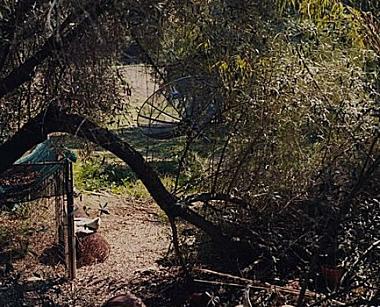
A way back
Glen Erler
Interview with Glen Erler Ahorn ... an online magazine dedicated to contemporary photography, directed and edited by Daniel Augschoell and Anya Jasbar.
_______________________
The Journal as Art: "Impossible Text"
Victor Muñoz
The most distinguishing formal characteristic of private writing is its fragmentation. Times, dates, incidents, occasions—but beyond these and, more fundamentally, what determines the shape of the writing is an openness to revealing the seams of perception and deliberation. Where they appear, actual dates have only a historical (if that) importance for anyone but the writer, though they may function as the native punctuation of the form. The fracturing needn’t be so obvious as that following upon a calendar. When the date or hour, as an index, is so stressed that the diary’s function becomes mnemonic, then it also turns scientific, instrumental and, as such, imminently disposable but for the facts it reports—and not our topic here. The muse, concerned with accuracy of a different order, suffers little compunction in making of a date, time, etc., a stylistic device (as in Gombrowicz, Frisch, Baudrillard and many Japanese diarists). Though it may expand the genre to unforgivable proportions to include a mass of philosophical literature, doing so would help to dissolve some of the puzzles of style and classification connected with the writings of some of the Pre-Socratics, Montaigne, Pascal, Kierkegaard, Nietzsche, Antonio Machado, Karl Kraus, Ludwig Wittgenstein, E.M. Cioran, Vilhelm Ekelund, Fernando Pessoa, Elias Canetti, Andrei Sinyavski, Laura (Riding) Jackson, et al. To the extent deeply experienced time is creative and in constant strife with the eternal, it has become increasingly conscious of its passing significance, its necessary tentativeness and incompleteness. The existential stutter reaches such a pitch that even crowning a thought with a date is judged so much frippery. Obviously all writing bears at least a casual relation to time, but only in the journal and related forms does the calendar insist on leaving tracks. The journal’s relation to time is essential without needing to be specific. The question, here, most pertinent to the keeper of these forms, is what has its explicit indication to do with substance?… There is, in effect, always a reference to time, however muted. Mortality insures that even a seamless journal (reflecting the lyrical aspirations of its keeper) is broken at its heart: It must be ready to leave off any moment. Novels, treatises, symphonies might remain unfinished, but who has ever heard of the unfinished diary? More cause for melancholy.(...)
The will to consciousness has so failed to locate us, to find us any place, and so corrupted—made a ruse of—every craft, every reach for order or form, that time, its steady givenness, is (again) offering to become the arbiter of authenticity, that supreme object of conceit. The space it clears for the soul is both lavish and quartered. Allowed to sing in its cell—but it is allowed to sing! Under the auspices of the day, the moment…the journal, vademecum of the soul, the literary form of consciousness itself, through its rhythmic circumscription, reintroduces ritual to the abandonment of the lyric, plays moralist to the aesthete, secreting for awhile (until the next thing) the truancy of any higher illusion, any God or the big Self...
The set begins to bear down too hard on me....(more)
_______________________
 nostalghia
Andrei Tarkosvky

photo - mw
_______________________
Goodbye To All That:
The Slow-Motion Death Of The Great American Newspaper
Shaun Mullen
Kiko's House
... nobody could have planned the decline and fall of what has been an essential part of our daily bread for so long: The newspaper that the neighbor boy threw onto the front porch each morning. Or into the bushes. The newspaper that we bought at the rail station on our commute downtown. The newspaper that Dad perused each evening while Mom cooked dinner. The big fat newspaper we scrambled to read on Sundays. Who would be the first to grab the comics? The "Extra" we rushed out to buy when the earth moved.
Looking back on a 35-year career as a reporter and editor who retired from the grind two months before the 9/11 attacks, the collapse of the newspaper industry was inevitable, and even forward-looking people could not have prevented it.
As someone who never took the news business for granted, I was one of those people....(more)
_______________________
Ocho #22:
Dear America Don't Be My Valentine
Eduardo C. Corral, Mary Meriam, Jeremy Halinen, Christine Leclerc, C. Dale Young, Julie R. Enszer, Matthew Hittinger, Steve Fellner, Linda Benninghoff, Scott Hightower, Franciszka Voeltz, Brent Goodman, Christian Gregory, Jen Currin, Charles Jensen, Tamiko Beyer, D.M. Solis, Brian Leary, Dean Kostos, Julie Weber, Blas Falconer, Francisco Aragon, Elizabeth J. Colen, RJ Gibson, Jee Leong Koh, Carol Guess, Christian Gullette, Monica Teresa Ortiz.
_______________________
Digital Scholarship in the Humanities
Lisa Spiro
_______________________
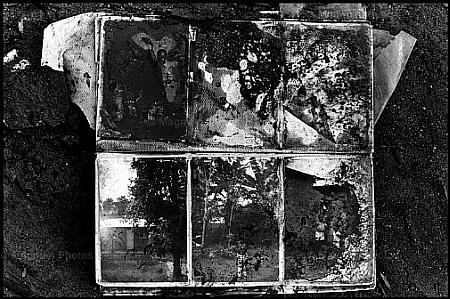
Photo-album found
at a massacre site
Rwanda. Nyamata. 1994
Gilles Peress .....................................................
Images, Reality and the Curse of History
Interview with Gilles Peress
UC Berkeley, with Harry Kreisler, April 10th, 1997
AMERICANSUBURBX
I'm like a perfect child of fury. I was force-fed so much of this stuff. At the same time I was dealing with reality. I was extremely involved in the French social reality at the time, and I started to see a huge gap between language and reality.(....)
So the move into photography partly reflects the disillusionment and frustrations of the social reality when you were in school?
Well, it was simply a question of survival: I needed a tool and a vehicle to understand and formalize what was out there in the world, my relationship to reality. If I didn't have that tool, I most surely would be in some mental asylum somewhere. So it was that I needed something to be able to mediate the relationship to the world, other than language....(more)
AMERICANSUBURB X Doug Rickard
Review by Tim Atherton
AMERICANSUBURBX essentially seems to be a compendium of some of the best writing about (along with a lot of the best photography about) our suburban world here. Which in effect means that's some of the best writing and photogrpahy of the last 20+ years or so (in fact it delves much further into the past than 20 years, drawing on some of the roots that have fed so much of the good photography today). There are magazine and newspaper articles, essays - some independent, some drawn from particular books and monographs. There are also some very current articles and interviews. There are videos and goodness knows what else tucked away in it. If you wanted to get a feel for and understanding of this central aspect of contemporary photography you could do worse than ready through everything on this site.
.....................................................
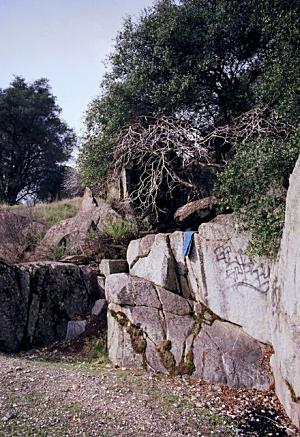 Landfall
Doug Rickard's portfolio
_______________________
above/ground press:
/ ALBERTA SERIES
Edited and produced by rob mclennan
Walking the labyrinth in the dark
Catherine Owen
The way in seems simple at first, stone
exclaims the entrance, stone swerves its Cartesian
patterns in concentric white and grain, but
as you pace through it becomes
obscured, grass purls over the edges, blurs
the perfect notion of form. And it is night,
the center-point indistinct; resolution lost.
You imagine deer coiling into the crux,
feasting, spoor small dark tumuli
between the lines, friars with their necks hooked
to prayer, dervishing to silence.
Always before you reach the end, you find
you are returning; the stars only low
their own clarity, the moon craters a beam.
Fyre
Catherine Owen
_______________________
Along the Archival Grain
Richard J. Cox reviews Ann Laura Stoler's, Along the Archival Grain: Epistemic Anxieties and Colonial Common Sense (Princeton: Princeton University Press, 2009)
Reading Archives
Stoler gets right to the point in her book with these first three sentences: “This book is about the force of writing and the feel of documents, about lettered governance and written traces [of?] colonial lives. It is about commitments to paper, and the political and personal work that such inscriptions perform. No least, it is about colonial archives as sites of the expectant and conjured – about dreams of comforting futures and forebodings of future failures” (p. 1). Using the 19th century Netherlands Indies and its extensive archives, Stoler provides the anthropologist’s view of colonial archives, through the sometimes-heavy jargon of that discipline, which gives a variety of insights into the nature of archives in general. Stoler’s book represents something of what I anticipate as a great flood of books about archives from other disciplines that not only examine in detail the records themselves but also even consider what archivists have had to say about the topic. Although Stoler’s commentary drawn from the work of archivists is meager (and hardly worth more mention than this), Along the Archival Grain is a book working archivists, archival educators and scholars, and archival students need to read....(more)
_______________________
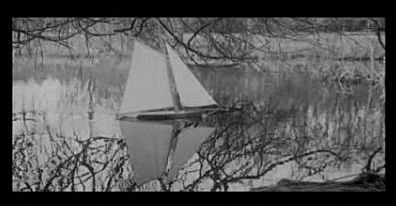
Little Boat
video
T Magazine via James Luckett
consumptive
_______________________
Miscast I
Amy Lowell
February 9, 1874 - May 12, 1925
I have whetted my brain until it is like a Damascus
blade,
So keen that it nicks off the floating fringes of passers-by,
So sharp that the air would turn its edge
Were it to be twisted in flight.
Licking passions have bitten their arabesques into it,
And the mark of them lies, in and out,
Worm-like,
With the beauty of corroded copper patterning white steel.
My brain is curved like a scimitar,
And sighs at its cutting
Like a sickle mowing grass.
But of what use is all this to me!
I, who am set to crack stones
In a country lane!
_______________________
The Plumbline School
Henry Gould
... a fellowship or Learning Society of poets who are dedicated to the study, elaboration and defense of the values inherent in what they term "plumbline poetry". They understand (and strive to emulate) poetry as a conjunction of opposites, or a mean between extremes, in the Aristotelian sense : normative, middling, equable, objective, comprehensive, inclusive, disinterested. POETRY = A HAPPY MEDIUM
via Joseph Duemer
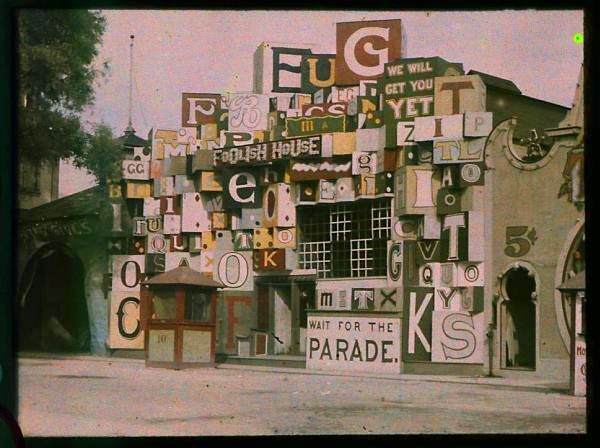
Foolish House
Ontario Beach Park
1910
Charles C. Zoller
George Eastman House's photostream
flickr
_______________________
The Opium Exclusion Act of 1909
Dale Gieringer
This week marks the centennial of a fateful landmark in U.S. history, the nation's first drug prohibition law. On February 9, 1909, Congress passed the Opium Exclusion Act, barring the importation of opium for smoking as of April 1. Thus began a hundred-year crusade that has unleashed unprecedented crime, violence and corruption around the world —a war with no victory in sight.
Long accustomed to federal drug control, most Americans are unaware that there was once a time when people were free to buy any drug, including opium, cocaine, and cannabis, at the pharmacy. In that bygone era, drug-related crime and violence were largely unknown, and drug use was not a major public concern.
The Opium Exclusion Act applied only to the opium processed for smoking that was favored by Chinese immigrants —not the medicinal opium that white Americans commonly kept in their household medicine cabinets. Smoking opium had attracted unfavorable notice from temperance advocates, missionaries and moral reformers. Inflamed by anti-Chinese sentiment, San Francisco had outlawed public opium dens in 1875 and many other communities with Chinese settlements followed suit. Nonetheless, the private use and commercial sale of smoking opium remained legal, with import duties yielding a million dollars per year to the U.S. Treasury.
Congress was moved to Act in 1909 not by any drug abuse crisis, but by foreign policy concerns. Per capita opium use had begun to decline by 1900, and only one in a thousand Americans indulged in smoking opium. Nonetheless, the State Department determined that an initiative against opium smoking would be useful in opening the door to China, which had long chafed under British compulsion to allow the opium trade. At the invitation of Theodore Roosevelt's administration, an international commission was convened in Shanghai in December 1908 to sign a treaty ending the trade –the first step in what would become a far-reaching international system of drug control. As a gesture of good faith, the State Department called on Congress to pass legislation that would ban the importation of smoking opium, thereby creating the first illegal drug....(more)
_______________________
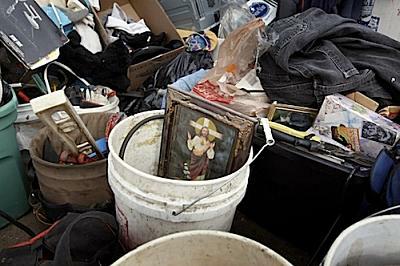 © John Moore/Getty Images
More Unraveling
Michael Shaw
BAGnewsNotes
The depth, acceleration and cruelty of this recession is unlike any I've seen before ... and I fear, it's still early. In my practice, many people are at the employment and financial precipice, and it's supremely painful to absorb. What makes the situation even more upsetting, however, is how difficult it is for the media to simply and sensitively, without patronization or drama, reflect what's going on.(....)
In each of these close ups, Moore captures the raw edge of not just one person's experience, but the tone and quality of what is happening in towns and cities across the nation. It is one thing to witness the family possessions constituted on the lawn. Seeing it from the inside, with this room torn apart and its contents carted off gets closer to the true violence of it. The second image, with its "throw away" allusion to spirituality references both the cheap morality as well the more existential questions about what is going on. And then, of all things to be floating in this chaos, the baby album speaks to how little place, time and history is counting for now....(more)
_______________________
My self, my trap
Jodi Dean
We have been produced as subjects unlikely to coalesce, subjects resistant to solidarity and suspicious of collectivity. Central to this production has been the cultivation and feeding of a sense of unique and special individuality. Every sperm is a sacred: so began the story of our unique cellular lives. Now we might say that every potential genetic combination carries with it the remarkable potentiality we are produced to locate in our individuated selves.
Each voice must be heard. But they don't combine into a chorus.
Each vote must be counted. But they add up to less than a movement.
Each person must be visible. But then we don't see a group.
The problem of personalized 'participatory' media is not only the personalization of participation. It's the participation in personalization: make your own avatar, video, profile, blog, mobster, video, app. Participation becomes personalization, the continued cultivation of one's person.
What would happen if we just stopped?...(more)
_______________________
Portrait of my Father
Maud Newton
granta
Exactly how long the prostitute, unbeknownst to my father, stayed at our house and slept in my bed is hard to gauge. Nowadays time lacks the expansive quality it had when I was eleven years old. But more than three weeks and less than five months elapsed between the day she moved in and the terrible afternoon he noticed her crouching behind the frosted glass shower door in the front bathroom, and kicked her out....(more)
Granta 104: Fathers
_______________________

badiou bus!
Bus slogan generator
infinite thØught
_______________________
Kevin Davies’s The Golden Age of Paraphernalia
John Latta
Isola di Rifiuti
What The Golden Age of Paraphernalia posits is a supposed world of “radiant connectedness,” a world beyond narrative ploys (“your life has no plot so stop narrating”). Except: it refuses to mete out the necessary credence in that world, the connectedness is a foil, a spark-spitting short in the circuitry, sign of dystopia. Here’s the blurbage after all, the mock self-assessment laid in to the pages of “Lateral Argument”:
And each category has dozens of subcategories
and each subcategory scores of its own, all
meticulously cross-referenced, linked, so that each square
centimetre of surface everywhere, pole to pole,
from the top of the mightiest Portuguese bell tower to
the intestinal lining of a sea turtle off Ecuador, has
billions of words and images attached, and a special area,
a little rectangle, for you to add your own comments.
It is the great work of a young-adult global
civilization, a metaliterate culture with time on its
prosthetic tentacles, at this point slightly more silicon
than carbon, blinking vulnerably in the light of its own
radiant connectedness.
It is the humor—self-deprecating, alert, winsomely falling into hints of pathos unobstruct’d, vulnerable to humor’s obverse (which is death)—that makes the book truly radiant. A glimpse of it here, in a line or two I read as address’d (at least partially) to Ed Dorn: “The world / to come has come and gone, Ed. Do you have any idea how cheap memory / is now?” ...(more)
_______________________

Winterlude
06 Feb 2009 - 22 Feb 2009
photo - mw
_______________________
New Jobless Numbers Expose the Utter Inadequacy of the Harper Budget
James Laxer
What the numbers make clear is the utter inadequacy of the Harper government’s budget. Ottawa’s plan, which involves direct spending of only about $6 billion this year and the same amount next year is not nearly enough to lift our $1.5 trillion economy out of the downward spiral in which it is caught. Last month alone, Canada lost twice as many jobs as the government’s whole stimulus package will create. And the numbers in future months, as even Stephen Harper acknowledges, will continue to be bad.
When confronted with the numbers and the demand to do more, Harper’s reaction was that “we cannot have in Parliament, quite frankly, instability every week and every month, every time there’s a new number, people demanding a different plan…”
Hard luck, he’s saying to the opposition parties, and much more importantly, that’s what he’s saying to Canadians. South of the border, meanwhile, where proportionately the rising toll of job losses was less severe that in Canada last month, there is a president who does understand the scale of the crisis and what it means for people and their communities....(more)
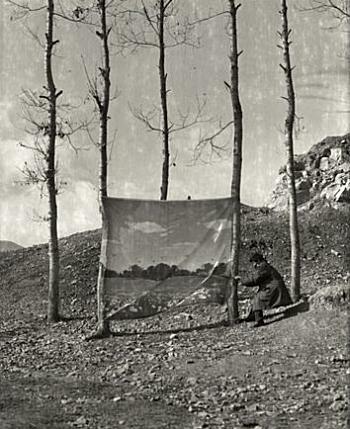 Photographer
Adou: Samalada
at Pace/MacGil
via gmtPlus9 (-15)
On Adou
Three Shadows Photography Art Centre
There is no difference between taking a picture of others and myself. The camera may be pointed outward, but whether you like it or not, it always reveals you.
-
Adou
Adou's photographs of the Yi ethnic minority go beyond documenting the realities of life on Sichuan's Da Liang Mountain. The landscapes and portraits in the series “Samalada” are more like self-portraits, reflections of the self and meditations on life and death, past and present. Adou's use of expired rolls of film creates mottled textures and anomalies, which evoke a melancholic nostalgia for the past. These works do not speak for, or explain the situation of the people depicted, but rather become part of the artist's visual language for self-expression. ...(more)
_______________________
Happy Thoughts!: The Poetry of Kevin Davies
Jordan Davis reviews The Golden Age Of Paraphernalia
Are you better off than you were four years ago? This is, for better or worse, the fundamental question of American politics. It is a trick question. In The Golden Age of Paraphernalia, Canadian-American poet Kevin Davies observes that the average answer would be about the same if the number of years was replaced with eighty or, for that matter, 13,000:
Yesterday? I stayed in out of the heat, washed dishes
Read a book
Remembered a cow
That as an ignorant boy with a board I walloped
For breaking into our yard
Eyes first puzzled then pissed off
Bellowing near my asparagus patch
Or was that later
After the big cedar fell and destroyed the fence
Or possibly when we mutinied, refusing to follow
Alexander farther into the subcontinent
Just wanting to go back to whatever inevitably temporary homes
With the baubles we'd collected and our blistered skins
Eat an entire sheep with a group of cousins
Maybe build a hut
Imperceptibly alter a grammar
Chase birds
Stand in the midst of barley
...(more)
.....................................................
Kevin Davies' Lateral Argument
reviewed by K. Silem Mohammad
"Lateral Argument" is one of the most socially, politically, and just plain imaginatively imaginative poems I have read from a contemporary poet. The poem is hilarious, lyrical, chilling, and perceptually acute.
Davies shifts contexts and tones rapidly, within what are otherwise shapely and well-behaved grammatical periods:
Like coming to the end of a dirt road
in a fever dream, as you stare the vegetation thinning
to reveal a copper-bound book of secret photographs
within which, looking closer, the vulnerable napes
of doomed soldiers and luckless noncombatants
have written upon them the doggerel
of porters.
Farther along
the fractal coastline of postmodern Norway
three lovers begin again
the Wittgensteinian project
of not thinking, not thinking
of a walrus.
...(more)
Lateral Argument [pdf] Kevin Davies .....................................................
I’m totally jealous. Kevin Davies wrote “Lateral Argument” and I didn’t.
- Ron Silliman
.....................................................
Kevin Davies - PhillyTalks 15
January 18, 2000
On Kevin Davies & the Disobedient Poetics of Determinate Negation [pdf]
Steve Evans _______________________
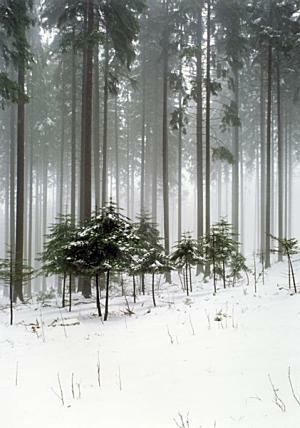
Dancing
Jitka Hanzlová
2002
From the series 'Forest'
1 2 3
Dryads of the deep forest
Into the woods
John Berger
“The way I go is the way back to see the future”
-
Jitka Hanzlov
THE forest in question is far away, near the Carpathian mountains, beside the Czech village where she lived as a child. The images could be of another forest, but not for Jitka Hanzlová. Over the years she has returned to hers. She goes into it alone, and if not alone does not take pictures.
Many nature photographs are like fashion photos. This is not to dismiss them; they record and admit pleasure. Mountaintops, waterfalls, meadows, lakes, beech trees in autumn, are asked to stand there, wearing themselves and giving the camera a moody look. And why not? They are reminders of the pleasure of at last arriving after hours in airports.
Nature as hostess.
In Jitka’s pictures there is no welcome. They have been taken from the inside. The deep inside of a forest, perceived like the inside of a glove by a hand within it.
She speaks of the between-forest. This is because, in the same valley as her village, there are two forests that join. Yet the preposition between belongs to forests in general. It’s what they are about.
A forest is what exists between its trees, between its dense undergrowth and its clearings, between all its life cycles and their different timescales, ranging from solar energy to insects that live for a day. A forest is also a meeting place between those who enter it and something unnameable and attendant, waiting behind a tree or in the undergrowth. Something intangible and within touching distance. Neither silent nor audible. It is not only visitors who feel this attendant something; hunters and foresters who can read unwritten signs are even more keenly aware of it....(more)
_______________________
And So We Have Arrived
Louis Dudek
And so we have arrived.
It narrows into the thin St. Lawrence.
Yet a river with a city inside it,
with a thousand islands,
as Cartier found it,
as Cabot discovered (I saw his face
in the Ducal Palace in Venice).
We have our physical heroes,
and are also a nation
built in the middle of water.
Somehow a bigger place than we left it:
a country with certain resources,
and a mind of its own, if lacking hunger.
The mountains of Gaspé doze, reclining,
in the air vacant as morning.
At home, there will be faces full of this light,
blank maybe, but beautiful.
Getting started is never easy.
We have work to do.
Europe is behind us.
America before us

Louis Dudek
b. Feb. 6, 1918
Appreciation of Louis Dudek
Bruce Whiteman
Sermon on the Mont: Louis Dudek’s Post-Modernist Cantos (VII-XII)
John Harris
dooney's cafe Quiet Hero: Louis Dudek
(February 6, 1918 - March 22, 2001)
Collett Tracey
Eternal Conversations: Remembering Louis Dudek: A Tribute Anthology
Edited By Aileen Collins Et Al
Reviewed by Charlotte Hussey
Louis Dudek, 1918-2001:
In Memoriam
Tony Tremblay
The Antigonish Review
The Surface Of Time
Louis Dudek
Reviewed by Carmine Starnino
Louis Dudek: Essays on His Works
George Hildebrand ed.
google books _______________________
 Testimonies of uprooting
Pierre Bourdieu in Algeria
via Pierre Joris
_______________________
It’s Not Going to Be OK
Chris Hedges
How will we cope with our decline? Will we cling to the absurd dreams of a superpower and a glorious tomorrow or will we responsibly face our stark new limitations? Will we heed those who are sober and rational, those who speak of a new simplicity and humility, or will we follow the demagogues and charlatans who rise up out of the slime in moments of crisis to offer fantastic visions? Will we radically transform our system to one that protects the ordinary citizen and fosters the common good, that defies the corporate state, or will we employ the brutality and technology of our internal security and surveillance apparatus to crush all dissent? We won’t have to wait long to find out....(more)
_______________________
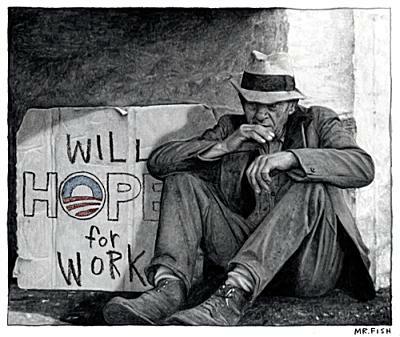
Spare Change
Mr. Fish
_______________________
from
( Fa l l O h O n e )
Kevin Davies
The world to come has come and gone, Ed. Do you have any idea how
cheap memory is now?
I am the global positioning system, me.
The air downtown has asbestos, fibreglass, and bone dust in it. Actually, it
smells a little like Prince George.
I have come to view my work as objectively reactionary.
Foam on the lips of Secretary of Defense Bumstead: "There are no silver bul-
lets!"
Marge Perloff's gardener, Ruben.
Sitting still for art is a learned skill. You learn it by sitting still in the proximity
of art. Possibly someone will have to tell you where the art is.
Describe Afghanistan with a stick.
Under cover of war, right-wing loons use their strong, foetid beaks to peck
apart environmental impediments to profit.
Never enter a ladder without a cave.
...(more)
arras 5: riddled argots
edited by
brian kim stefans
Pause Button
Kevin Davies
Davies writing takes the social critique of the Language Poets and the crushing ear of the best Projective versifiers and sets it all in cyclotronic motion with his rapier's wit and caffeinated melancholy, making him the Zorro of poets associated with Vancouver's Kootenay School of Writing and the anthemist of choice for a disowned intelligentsia. Davies, who now lives in New York, published his second book, Comp., in 2000 to much acclaim, but the quasi-legendary Pause Button, first published in 1992 by Vancouver's Tsunami Editions, has long been unavailable to those not in the vicinity of Canada's choice used bookstores.
ubu editions
_______________________
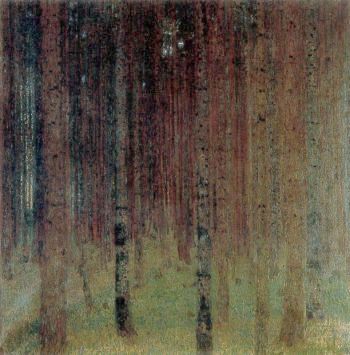
Pine Forest
Gustav Klimt
July 14, 1862 – February 6, 1918
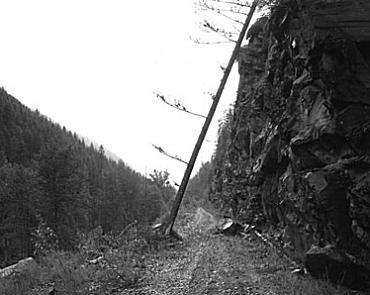
Mark Ruwedel 1 2 3
_______________________
Photographer Mark Ruwedel: ticket to nowhere
Liz Jobey reviews Westward the Course of Empire
In Ruwedel's pictures, it seems often as it must have done in the 1860s, when photographers such as Carleton Watkins first recorded it: astonishingly beautiful and full of natural drama. At the same time, the line of these abandoned tracks is enough to suggest over a century of exploitation, not just by rail, but by generations of prospectors and developers who have mined, forested, overbuilt and exhausted the country's natural resources.
Now that most people cross the United States or Canada by plane, bus, or car, it is difficult to imagine just how many railway companies there once were. Their names conjure up a time when new towns and settlements were being laid out along the railways, with little regard for adequate water supplies or means of cultivating the soil, and competing railroad companies joined up the dots: Picacho and Colorado River; Chicago Milwaukee St Paul and Pacific; Columbia and Western, to name a few.
Each of Ruwedel's prints (recently exhibited in Paris), has the name of the railroad company handwritten in pencil beneath it. This careful calligraphy, with its spacing marked by a pencil line top and bottom, is reproduced in the book, part of the attention to detail that makes the whole enterprise so calmly impressive. ...(more)
_______________________
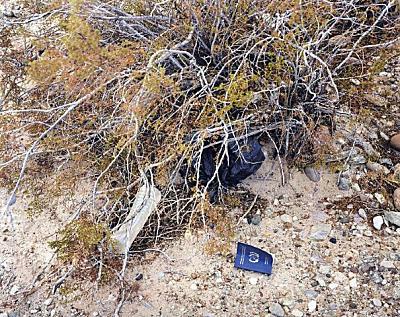
Crossings
Mark Ruwedel
2005
_______________________
Polar intertia
journal of nomadic and popular culture
_______________________
The Birch
journal of Eastern European and Eurasian culture
published by Columbia University
_______________________
There is no place else to go
The theater is closed
There is no place else to go
The theater is closed
Cut word lines
Cut music lines
Smash the control images
Smash the control machine.
-
William S. Burroughs, Quick Fix
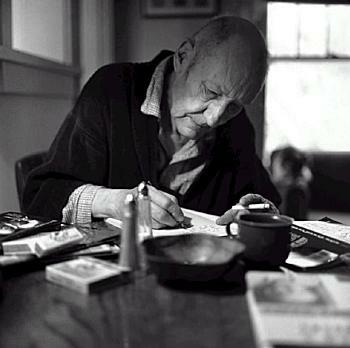
William S. Burroughs
(February 5, 1914 – August 2, 1997) at his home
Lawrence, Kan., in 1991
photo - Allen Ginsberg/Corbis
A psychotic is someone who just found out what's going on.
-
William S. Burroughs
_______________________

Language is a Virus From Outer Space
Laurie Anderson
youtube
_______________________
Excerpted from
Wittgenstein's Ladder: Poetic Language And The Strangeness Of The Ordinary
by Marjorie Perloff
... his writing of "philosophy" as if it were "poetry" dramatizes the process of working through particular questions so as to test what can and cannot be said about literary forms (e.g., poetry), concepts (e.g., barbarism), and facts of life (e.g., death). "A philosopher," he wrote in 1944, "is a man who has to cure many intellectual diseases in himself before he can arrive at the notions of common sense". And again, "My account will be hard to follow: because it says something new but still has egg-shells from the old view sticking to it". Perhaps it is this curious mix of mysticism and common-sense, of radical thought to which the "egg-shells" of one's old views continue to "stick," that has made Wittgenstein, who had no interest at all in the "poetry" of his own time, paradoxically a kind of patron saint for poets and artists.
In the Introduction to the screenplay he wrote for Derek Jarman's 1993 film on Wittgenstein, Terry Eagleton remarks:
The library of artistic works on Ludwig Wittgenstein continues to accumulate. What is it about this man, whose philosophy can be taxing and technical enough, which so fascinates the artistic imagination? Frege is a philosopher's philosopher, Bertrand Russell every shopkeeper's image of the sage, and Sartre the media's idea of an intellectual; but Wittgenstein is the philosopher of poets and composers, playwrights and novelists, and snatches of his mighty Tractatus have even been set to music.
...(more)
_______________________

Western Pacific (Spur)
Westward the Course of Empire
Mark Ruwedel
Yossi Milo Gallery
February 5, 2009-March 7, 2009
via Heading East
_______________________
PoemTalk
a podcast series
sponsored by
the Poetry Foundation | the Kelly Writers House | & PennSound
(PT#14) - Wallace Stevens' Not Ideas about the Thing but the Thing Itself
Al Filreis, Charles Bernstein, Nada Gordon and Lawrence Joseph
.....................................................
Not Ideas about the Thing but the Thing Itself
Wallace Stevens
At the earliest ending of winter,
In March, a scrawny cry from outside
Seemed like a sound in his mind.
He knew that he heard it,
A bird's cry, at daylight or before,
In the early March wind.
The sun was rising at six,
No longer a battered panache above snow...
It would have been outside.
It was not from the vast ventriloquism
Of sleep's faded papier-mache...
The sun was coming from the outside.
That scrawny cry--It was
A chorister whose c preceded the choir.
It was part of the colossal sun,
Surrounded by its choral rings,
Still far away. It was like
A new knowledge of reality.
_______________________

East White Bluffs Ferry Site
Mark Ruwedel
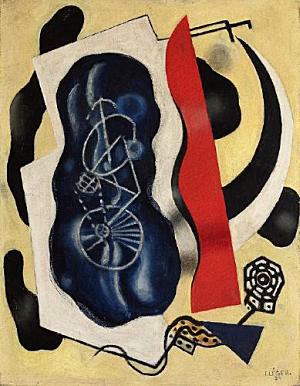
The bicycle
Fernand Léger
1930
_______________________
I knew the Sergeant was talking the truth and if it was a question of taking my choice, it was possible that I would have to forego the reality of all the simple things my eyes were looking at.
-
Flann O'Brien, The Third Policeman
Absurd Tricks with Bicycle Frames in the Text World of The Third Policeman [PDF]
Joanna Gavins
...current understanding of the stylistic mechanisms at work within The Third Policeman remains relatively slight. The present study is intended not only as a further contribution to existing knowledge about the stylistics of O'Brien's text, but also as a unique exploration of its narrative structure from a specifically Cognitive Poetic perspective. The analysis which follows in section 3 below uses Text World Theory, as developed by Paul Werth, as its methodological framework, the basic principles of which are explained in section 2. Like those analyses which have gone before it, my examination of the structure of The Third Policeman is by no means exhaustive. It does, however, provide a unique insight into the complex conceptual processes involved in our understanding of this absurd and often almost hallucinatory narrative experience.
_______________________
Jack Kimball on a Lost Sublime
pantaloons
In addition to the visual poetry of filmmakers and photograhers, there is a textual poetry of hysteria brought on by religious fervor cum death. It could be, come to think of it, this is the only strain of genuine American romance. Obviously, I'm not talking about a soiled grab bag category like American sublime. I'm thinking about a Lost Sublime That's Dead to the Touch. Maybe, alternatively, The Fucked Pioneer. It might start with Emily Dickinson, just as American sublime does, but it takes us subterraneously to darker, greener, more wholesale hells and chat rooms we like to think of as ours, now. ...(more)
_______________________

Various Ruins Eric Tabuchi
_______________________
Why Are We Still at War?
Norman Solomon
Early into the second year of the Afghanistan war, in November 2002, a retired U.S. Army general, William Odom, appeared on C-SPAN’s “Washington Journal” program and told viewers: “Terrorism is not an enemy. It cannot be defeated. It’s a tactic. It’s about as sensible to say we declare war on night attacks and expect we’re going to win that war. We’re not going to win the war on terrorism.”
But the “war on terrorism” rubric -- increasingly shortened to the even vaguer “war on terror” -- kept holding enormous promise for a warfare state of mind. Early on, the writer Joan Didion saw the blotting of the horizon and said so: “We had seen, most importantly, the insistent use of Sept. 11 to justify the reconception of America’s correct role in the world as one of initiating and waging virtually perpetual war.”
There, in one sentence, an essayist and novelist had captured the essence of a historical moment that vast numbers of journalists had refused to recognize -- or, at least, had refused to publicly acknowledge. Didion put to shame the array of self-important and widely lauded journalists at the likes of the New York Times, the Washington Post, PBS and National Public Radio.(....)
Now, on Capitol Hill and at the White House, convenience masquerades as realism about “the war on terror.” Too big to fail. A beast too awesome and immortal not to feed.
And death will be our darling. And fear will be our name....(more)
_______________________
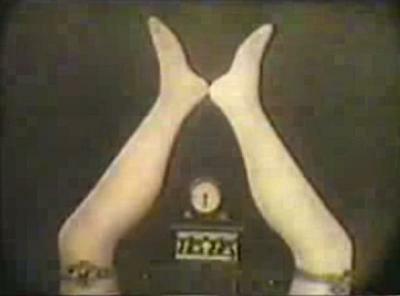
Ballet Mecanique
Fernand Léger
1924
youtube
_______________________
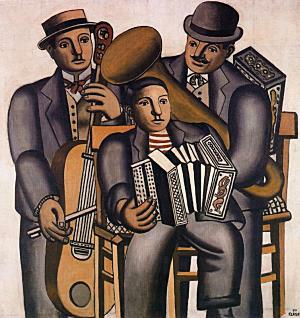
Fernand Léger
b. February 4, 1881 177 images
_______________________
Special Issue: Regarding a Critical Rhetoric
Janus Head
Spring 2000 3.1
The Knot between Ricoeur and Derrida:
A Look at Rhetoric in the Human Sciences
Rex Olson
. . It is clear that rhetoric is something one can decorously indulge in as long as one knows where it belongs. Like a woman, which it resembles ('like the fair sex'), it is a fine thing as long as it is kept in its proper place. Out of place, among the serious affairs of men ('if we could speak of things as they are'), it is a disruptive scandal-- like the appearance of a real woman in a gentleman's club where it would only be tolerated as a picture, preferably naked (like the image of Truth), framed and hung on the wall.
-
Paul de Man, "The Epistemology of Metaphor"
It seems fitting that the first special issue of Janus Head features an exploration of the relationship between rhetoric and the human sciences. At first glance one might overlook the possibility of interpenetrating connections, for in every first glance there is danger its quick synthesis may impede any consideration of a deeper link. But with a closer, second look, we discover that to understand the nature of this relationship is to stand at the crossroads of the Janus Head vision; or, in a more profound sense, it is to dwell in the depths of its interdisciplinary soul, and only the question of rhetoric dares to bring us there. Whether as a mode of persuasion or figures of speech, rhetoric is fundamentally a question of soul. Its worry is for the soul of listeners and expressed in the soul of the one who speaks. In this sense soul (anima) carries the kind of metaphorical doublings that makes the study of rhetoric, by necessity, an inter-disciplinary activity. At the same time a focus on rhetoric discloses the limits of psychology and philosophy or any discipline whose appropriation of things takes on a modernist cast. That is, rhetoric is at once the condition of possibility for psychology and philosophy to the extent these disciplines seem to keep rhetoric in her place and the condition of impossibility insofar as she undoes things the moment we take her seriously at her word. James Hillman, one of this country's most scholarly and thoughtful critics of contemporary psychological life, writes, "psychic reality is inextricably involved with rhetoric. The perspective of soul is inseparable from the manner of speaking of soul, a manner which evokes soul, brings to life, and persuades us into a psychological perspective" .....(more)
_______________________
The Whole World Is Rioting as the Economic Crisis Worsens
-- Why Aren't We?
Joshua Holland
AlterNet
Notably absent from the list of countries where the economic crunch is rending the social fabric is the good ole US of A, a state with the greatest level of economic inequality in the wealthy world.
Outside of a few scattered and quickly contained protests, the citizens of the U.S. -- a country born of revolution, but with an elite that's been terrified of that legacy since immediately after its founding -- have been calm, despite opinion polls showing that Americans are more dissatisfied with the direction in which the country has been headed since they began measuring such things. (....)
Thomas Frank argued eloquently in What's the Matter With Kansas that those wedge social issues that the American right nurtures with such care obscure the fundamental differences between the rich and poor, the powerful and the disenfranchised.
Indeed, any hint of discussion of economic inequality in the U.S. is shot down with cries of "class warfare" -- exactly what is playing out in the streets of much of the world today. ...(more)
_______________________
Delusional in Davos
Why the global business elite feel no remorse about the damage they've done.
Federico Fubini
_______________________
 men in the city
Fernand Léger
_______________________
'Why are you weeping?' said Bembel Rudzuk.
'I am suffering from an attack of history,' I said.
'It will pass,' said Bembel Rudzuk.
-
Pilgermann, Russell Hoban, b. Feb 4 1925
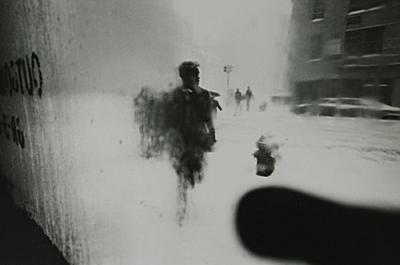
Saul Leiter
_______________________
Winter Evening
When snow falls against the window,
Long sounds the evening bell...
For so many has the table
Been prepared, the house set in order.
From their wandering, many
Come on dark paths to this gateway.
The tree of grace is flowering in gold
Out of the cool sap of the earth.
In stillness, wanderer, step in:
Grief has worn the threshold into stone.
But see: in pure light, glowing
There on the table: bread and wine.
Georg Trakl
(February 3, 1887 – November 3, 1914)
Twenty Poems [pdf] trans. by James Wright and Robert Bly
Wersch's Website for Georg Trakl
a major resource with translations mainly by Jim Doss and Werner Schmitt _______________________
End of the Pier Show
Michael Hofmann
granta
It was — what? — the triumph of hope
over experience. But what triumph
(and what hope)? The continued display
of a kind of unreasonable fortitude,
the man — Beowulf — stooping
to pick his severed head off the sawdust,
and doing it again and again. And she,
the woman, sold, to her mind, on love
as a kind of motor syrup — a green linctus —
that was slowly replacing her blood.
Perhaps lycanthropy. A pessimistic sublime.
...(more)
.....................................................
ReadySteadyBook Interview: Michael Hofmann
I started translating only shortly after my “debut” as poet (1979, in London Magazine) and as reviewer (1980, in the TLS). My first translation from – my native language – German came out in 1985. A novel by Kurt Tucholsky, called Castle Gripsholm, and I did a few odds and ends before that. I expected to translate a novel a year, or every other year, to stay busy, and to make a little money. It’s rather run away with me. I’ve even lost count of how many books I’ve done. I suppose Joseph Roth is the main culprit (I’m working on my tenth book of his, an annotated selection of his letters), but there are others too whom I couldn’t stand not to do: Wolfgang Koeppen (four titles), Wim Wenders (three), my father (three again). I’m translating my second Kafka (the short stories), my second Brecht (Mother Courage). I don’t really know what it is. An expression of my fealty to German? Or to prose? Something Macchiavellian, a practical identification of a type of work that’s always there to do, and that’s endlessly portable? Or something altogether more sinister: a kind of driven self-obliteration? Am I pushing myself forward, or holding myself back? I dislike the process and the work, but I love the results, the finished books. Perhaps poetry, at my rate of output, just doesn’t seem enough to show for a life. “A slim bundle of dead writs,” Ian Hamilton puts it; he forced himself to do these big editing jobs (the Oxford Companion to Twentieth Century Literature, etc.) and these big biographies (Lowell, Salinger, Hollywood writers, etc.). Perhaps my translations are my equivalent, a partial self-industrialisation that leaves my poetry – like his, I would say – home-made? As to whether it’s creative or not, I think it’s not for me to say. It takes every last word out of me, that’s for sure, and I do have the highest hopes and ambitions for it. I don’t fool myself that the translations are “by” me, but they are “my books”, and carry my imprimatur. I like to think there is something in them that sets them apart, that they wouldn’t have been exactly the same if someone else had done them. Or a machine…...(more)
Animadversions on translation
Michael Hofmann open democracy
which includes this poem from Acrimony (Faber, 1986) ...
Between Bed and Wastepaper Basket
There hasn’t been much to cheer about in three years
in this boxroom shaped like a loaf of bread,
the flimsy partitions of the servants’ quarters,
high up in the drafty cranium of the house.
All things tend towards the yellow of unlove,
the tawny, moulting carpet where I am commemorated
by tea- and coffee-stains, by the round holes of furniture –
too much of it, and too long in the same place.
Here, we have been prepared for whatever comes next.
The dishonest, middle-aged anorexic has been moved on.
The radio-buff is now responsible for contact
in the cardboard huts of the British Antarctic Survey.
...(more)
_______________________
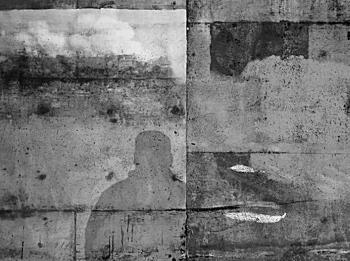
the vision
Germán Herrera more
_______________________
"As long as the outside does not put a value on you it remains outside but when it does put a value on you then it gets inside or rather if the outside puts a value on you then all your inside gets to be outside."
-
Gertrude Stein
(February 3, 1874 - July 27, 1946)
_______________________
the poetry who ran
Elísabet Jökulsdóttir
Translation: Eiríkur Örn Norðdahl
the poet was feeling doubtful about the state of poetry and attended a meeting and then the poetry was in a meeting many poetries together and the poetry was in sentences and questions and the poetry rose from the dead without ever having died or is this some sort of joke the poetry thought quickly descending the cliff and the poet would gather eggs from the cliff face and inside the eggs were words and the poet would suck ’em out and the poetry would broom through the skies and attend the meeting and the poetry had sat down to laugh in a sentence at a question and then they had recess and the poetries swung from the chandeliers and were sober and would fall into the redwine-glasses becoming their own rubbish and the poetry would slurp wine through a pink laststraw and floated on ice in the ocean and you’re all a bunch of pinko faggots the poetry jabbered calmly and haughtily and the word froze and everybody pretended they didn’t hear and the poetry broadly smiling went into hiding and I am above your petty bickering said the poetry and got all bummed out down in the straw which became shaped like a poetry ...(more)
_______________________
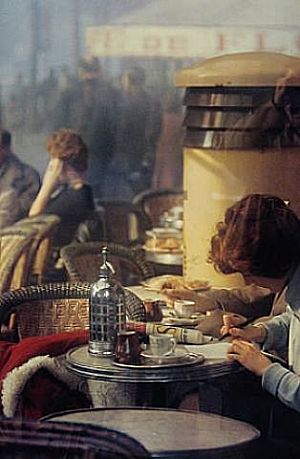
Cafe, Paris
Saul Leiter
1959
Saul Leiter Inspires Revolutionary Road
Horses Think
_______________________
Manifesto of the Flying Mallet
What really matters in relation to poetry has probably never been said—Ezra Pound’s “logopoeia” (doing things with words) the nearest thing. All there is is confusion, pretense, contradiction, and instinct. Most of what proposes itself—or is hailed or dismissed—as poetry at any given time probably isn’t. Poetry is soluble intelligence, but it reserves to itself the right on occasion to be stupid. (And sometimes it is nothing but feeling or eyesight or glossolalia or journalism.) Poetry is subtle, but sometimes “as subtle as a flying mallet,” as the man says. Poetry isn’t about rules or about infractions, but there is something by definition rebellious in its use of speech for its own purposes. Poetry may be effective or ineffectual, but it is never overly designing. Poetry is delayed, instant; unending, brief; electric, tiny. Each poem is an insurrection against the world before it existed—or a desertion from it. ...(more)
Second in a series of eight manifestos.
February 2009 issue of Poetry
_______________________
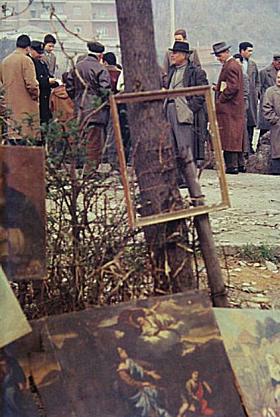
Saul Leiter
_______________________
History without memory
Gothic morality in post-Soviet society
Dina Khapaeva
eurozine
The concept of feudalism inevitably evokes the image of a traditional society with a strong hierarchy, based on the nobility, privileges and land ownership. It connotes not only princesses and knights, tournaments and castles, but also a degree of technical backwardness that our contemporaries would find hard to imagine. In other words, the concept of feudalism can only compromise the worrisome diagnosis, unnecessarily violating the common sense that we are not returning to the Middle Ages. The most important similarities between our conditions and certain medieval practices lie not in the particular economic and social order reflected in the concept of feudalism. They reside in the aesthetic and moral transformations that are generated by gothic allusions.
To show that civil society, professionalism and the rule of law are gradually disappearing from the practices of the contemporary state (which we habitually call "democratic"), new concepts have to be invented. "Gothic society" is a concept that attempts to communicate the sense of urgency. Gothic society manifests itself in the evolution undergone by post-Soviet society over the last ten years. Gothic society represents just one possible – and the least desirable – scenario for Russia. Let us consider some of its elements....(more)
_______________________
Road Trip
James Howard Kunstler
"We will not apologize for our way of life...."
This unfortunate phrase from President Obama's otherwise sturdy inaugural address, echoed through my mind last week as I cruised the suburban outlands of Montgomery, Alabama. All the usual commercial furnishings of consumerist America hugged the flattish ochre and dusty-green landscape of played-out cotton fields where thirty feet of topsoil has washed away in the two hundred years since the mainly English settlers shoved out the native Alabamu, Coosa, and Tallapoosa. Along the low horizon, mall followed strip mall followed "lifestyle center," book-ending the "one house" failed subdivisions of otherwise empty unsold lots in a cavalcade of floundering enterprise. It seemed at times as if the terrain was a kind of sea-like expanse, and all the retail boxes ghost ships drifting to oblivion.
They say that the banks have stopped calling in their loans on the commercial real estate, even though the owners of the malls and strip malls have arrived firmly in default. Calling in the loans would only pin another horrifying liability on the banks' balance sheets. So all parties join in a game of "pretend," that nothing has really happened to the fundamental equations of business life. Something similar goes on at the next level down, where the tenants of the malls and strip malls sink deeper into rent arrears every month, and the eviction process is simply postponed, while the stores themselves put off paying their vendors and suppliers – as the whole system, the whole way of life, enters upon a circle-jerk of mutual denial in a last desperate effort to forestall the mandates of reality ....(more)
_______________________
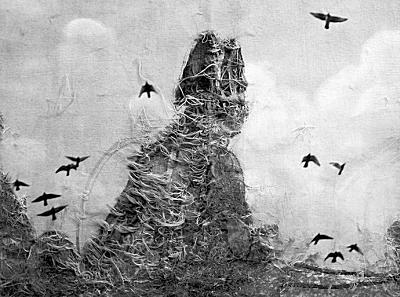
Unravel
Between Here And Now
Germán Herrera
zone zero
_______________________
Melancholy of the Evening
Georg Trakl
translated by Jim Doss and Werner Schmitt
-- The forest, which widens deceased --
And shadows are around it, like hedges.
The deer comes trembling out of hidden places,
While a brook glides very quiet
And follows ferns and ancient stones
And gleams silverly from tangled foliage.
Soon one hears it in black gorges -
Perhaps, also that stars already shine.
The dark plain seems endless,
Scattered villages, marsh and pond,
And something feigns a fire to you.
A cold gleam shoos over roads.
In the sky one anticipates movement,
An army of wild birds migrates
Towards those lands, beautiful, distant.
The stirring of reeds rises and sinks.
_______________________
OA, IRs and IP: [PDF]
Open Access, Digital Copyright and Marketplace Competition
Georgia Harper
The copyright conundrum created by open access is more basic than this: Is it appropriate, is it even necessary, and certainly, is it the best way going forward, to artificially make our works difficult to find and access and saddle them with high prices in an era when people all over the world could quickly know about our current research results through the Web for no more than the cost to them of their own infrastructure to find and read our works?
For more than 200 years copyright law has enabled, and scholars and their publishers have depended on, the mechanism of state-granted monopoly, "creating artificial scarcity" to give publishers a period of time during which they can charge higher prices than the market would otherwise dictate and recover their costs of publishing plus a profit in most cases. But today we have instant access to digital creative works, and easy, world-wide distribution for almost no cost for the reader beyond the cost of computers, internet access and electricity. In this world, the monopolistic mechanism of "artificial scarcity" turns what is one of the most important, most critical advantages of the digital world into something to be fought tooth and nail. The solution isn’t stronger and longer copyrights. It more likely will emerge from massive experimentation to find satisfactory business models that can fund the creation of works, still a costly undertaking, without sacrificing the digital benefit of relatively free distribution to anyone and everyone who might desire to access our works.
Everyone in this room probably knows this. But what we may not realize is the magnitude of the experiment and what it also tests -- that if in fact it is not just possible but profitable to create and disseminate digital research results (or any creative digital work for that matter) without relying on the copyright monopoly, and if the social costs of monopoly begin to outweigh its public benefits in the coming world of ubiquitous repositories adding to ubiquitous Web content, all providing ubiquitous open access, the experiment tests the validity of the fundamental assumption underlying copyright, that monopoly is the only way (or even the best way) to achieve optimal production of most creative works. via Peter Suber
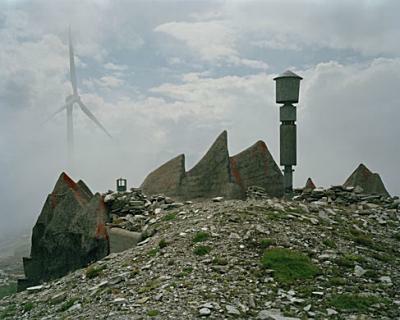
Swiss Bunkers
Leo Fabrizio
via Mrs. Deane
_______________________
Now gode. Let us leave theories there and return to here's here. Now hear. 'Tis gode again. The teak coffin, Pughglasspanelfitted, feets to the east, was to turn in later, and pitly patly near the porpus, materially effecting the cause. And this, liever, is the thinghowe. Any number of conservative public bodies, through a number of select and other committees having power to add to their number, before voting themselves and himself, town, port and garrison, by a fit and proper resolution, following a koorts order of the groundwet, once for all out of plotty existence, as a forescut, so you maateskippey might to you cuttinrunner on a neuw pack of klerds, made him, while his body still persisted, their present of a protem grave in Moyelta of the best Lough Neagh pattern, then as much in demand among misonesans as the Isle of Man today among limniphobes.
-
Finnegans Wake
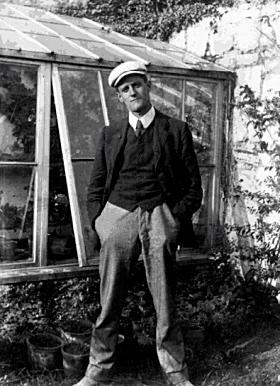
James Joyce
2 February 1882 – 13 January 1941
Three quarks for Muster Mark!
Sure he hasn't got much of a bark
And sure any he has it's all beside the mark.
But O, Wreneagle Almighty, wouldn't un be a sky of a lark
To see that old buzzard whooping about for uns shirt in the dark
And he hunting round for uns speckled trousers around by Palmer- stown Park?
Hohohoho, moulty Mark!
You're the rummest old rooster ever flopped out of a Noah's ark
And you think you're cock of the wark.
Fowls, up! Tristy's the spry young spark
That'll tread her and wed her and bed her and red her
Without ever winking the tail of a feather
And that's how that chap's going to make his money and mark!
Overhoved, shrillgleescreaming. That song sang seaswans. The winging ones. Seahawk, seagull, curlew and plover, kestrel and capercallzie. All the birds of the sea they trolled out rightbold when they smacked the big kuss of Trustan with Usolde.
-
Finnegans Wake 2.4.383
_______________________
Poetics.ca #8
.....................................................
17 seconds
( : a journal of poetry and poetics )
First Issue: Fall 08
via rob mclennan
_______________________
Celan, Kafka, & the Glottal Stop
Pierre Joris responds to Matthew Landis' We Who Are Left Behind: Poetry as Testimony in Derrida and Celan
_______________________
Totally Entirely Quite Completely Not At All
John Bloomberg-Rissman
big bridge
The alarm: 6:10 a.m.
The last few minutes
Of a Bach double concerto
Then a smooth low masculine voice
“The oboe and the violin …
“Intimate conversation …
“One bites one’s nails …”
Sometimes words deserve
Their bad reputation
His are screens
Padlocks
On the doors of perception
Wittgenstein:
“Whereof one cannot speak
“One must remain silent”
(Emphasis mine)
The muses of translation say
No work today
It’s Sunday
The rain has stopped
The masses will be clad
In all their raging glory
...(more)
An Interview with John Bloomberg-Rissman
Tom Beckett
in Otoliths Issue 12
edited by Mark Young
_______________________
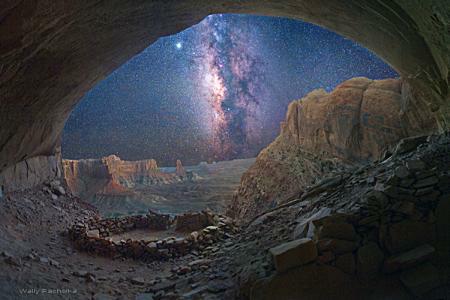
False Kiva
Eastern Utah
Wally Pacholka Bright Night Gallery
America's National Parks at Night
_______________________
Principles of the American Cargo Cult
Peter Klausler
Complicated explanations are suspect
The world is simple, and there must be a simple explanation for everything.
Certainty is strength, doubt is weakness
Admitting alternatives is undermining one's own belief.
Changing one's mind means one has wasted the time spent holding the prior opinion.
(....)
You can succeed by emulating the purported behavior of successful people
This is the key to the cargo cult. To enjoy the success of another, just mimic the rituals he claims to follow.
Your idol gets the blame if things don't work out, not you.
(....)
Tragedy is a synonym for calamity
Bad things are never consequences of one's own action or inaction.
There will be justice
Bad people get punished.
You, however, will be forgiven.
...(more)
via Making Light
_______________________
Refuted economic doctrines
John Quiggin
#1 The efficient markets hypothesis
#2 The case for privatisation
#3 The Great Moderation
#4 Individual retirement accounts
#5 Trickle down
_______________________
Banking At Night
Gavin Keeney
It’s best to bank
At night,
To enter the dark
Pools at dusk --
Liquidity and vapors,
Sights and sounds
Of capital lost
To capital.
Not that the Beast
Is asleep --
Or ever sleeps.
...(more)
_______________________
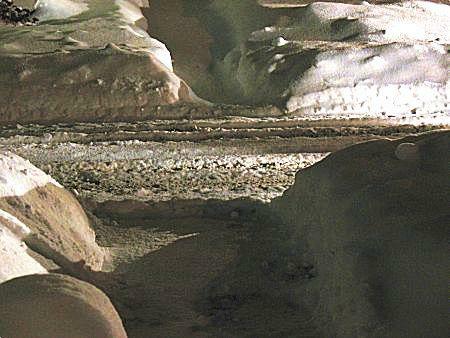 photo - mw
_______________________
Against Plain Style
John Latta
His natural bent was for treating them as goddesses in niches . . . He didn’t in the least admire their physical beauty, as a rule. He looked upon them as he looked upon those very venerable black Madonnas who invariably work miracles. The form and ornament of them made him simply sick, ‘usque ad nauseum,’ by reason of its vapid bunchiness and vacuous inconsequent patchworkiness. . . . You should have observed his furious forbearance with the scraggy ladies of rectors, or with the tailor-made females who still hoped to allure a man with their motley mangy boas and hybrid hand-bags and clinking beads and heterogeneous high heels and foolish fat stockings and hard waists (o Aphrodite Anadyomene) and tabby hats like crumpled wrecks of flea-bitten birds’ nets of felt plastered with the scratchings of rag-bags and gigantic withered old cauliflowers.
- Frederick Rolfe
Do I thrill to “vapid bunchiness”? I do, I do. Is it the result of the sheer shallowness of all the short vowels? It is, it is. What about “scraggy ladies of rectors”? Isnt’ the contempt rack’d up in that scr, that rect, like a man hocking up a clot of phlegm? (It is, it is.) What Auden says in a foreword to The Desire and Pursuit of the Whole:
A gift for literary expression can embarrass its owner for it is always revealing his nature to others without his consent or even his knowledge. Banalities and platitudes are effective masks which can be worn by any face and it is impossible to guess the character of the wearer through them; but a genuine style, however ‘artificial’ or ‘impersonal,’ however intended to conceal, is the creation of the unique face behind it and its ‘unlikeness’ to the latter is never arbitrary.
Ammo against the prevalent plain style. Argument that (possibly) what it most successfully conceals is the “banalities and platitudes” of its “wearer.” ...(more)
_______________________
Countlessness of livestories have netherfallen by this plage, flick as flowflakes, litters from aloft, like a waast wizzard all of whirlworlds. Now are all tombed to the mound, isges to isges, erde from erde.
-
Finnegans Wake
|
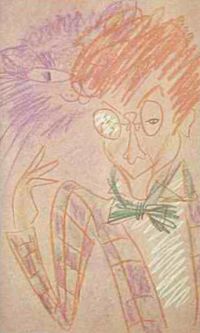
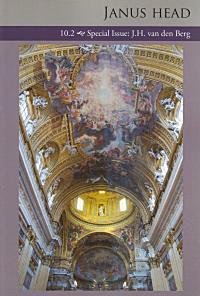 Janus Head
Janus Head
 The Age of Briggs & Stratton
The Age of Briggs & Stratton























































